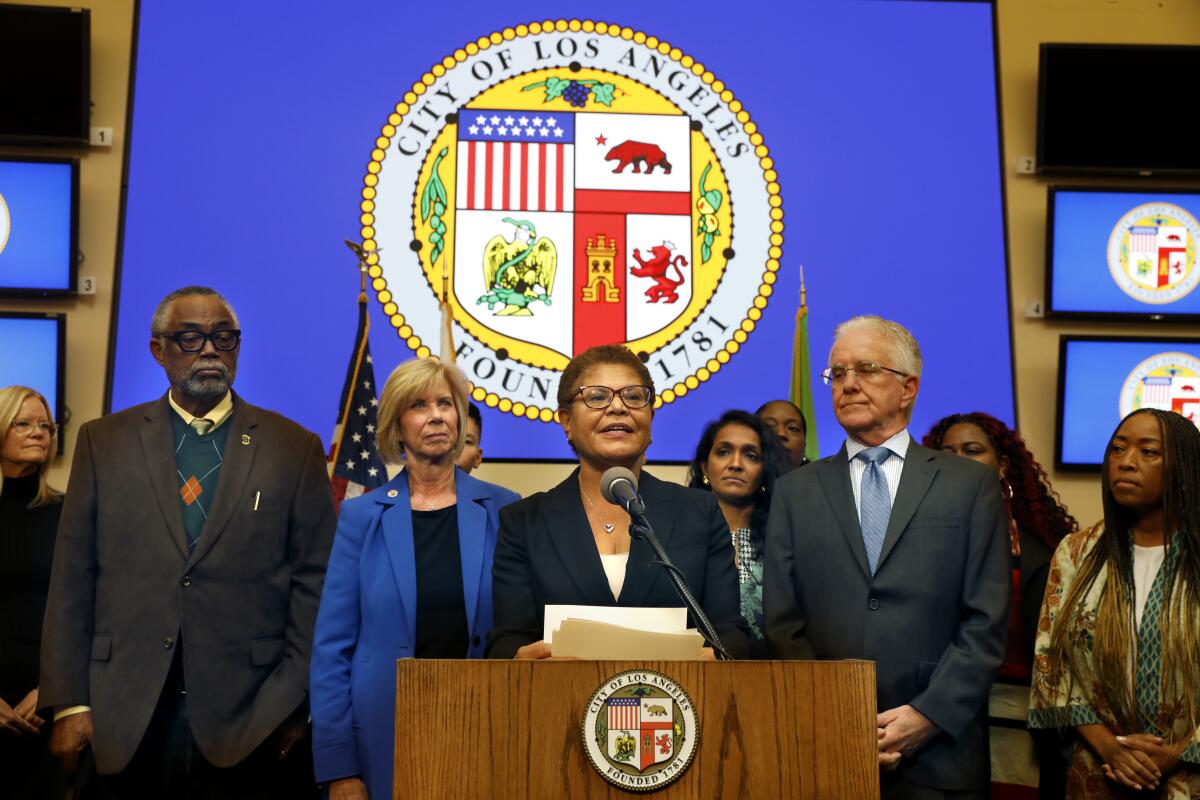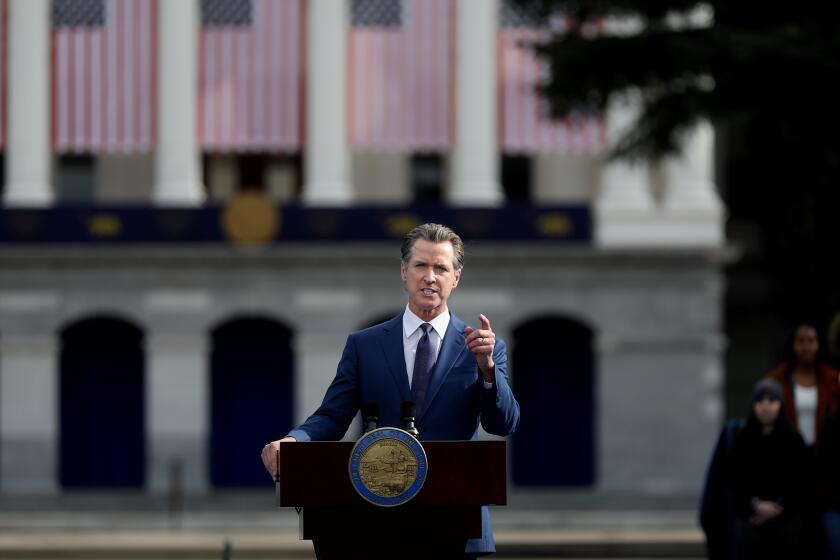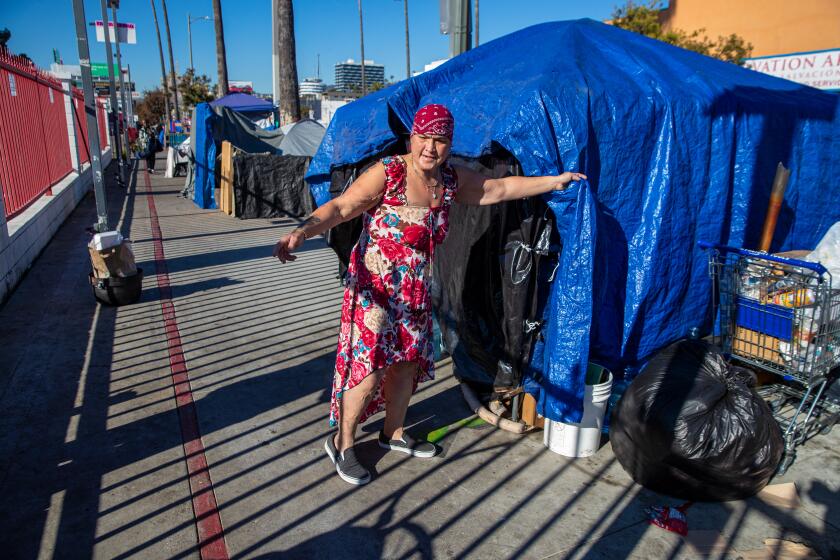Editorial: Los Angeles’ flush financial times are coming to an end

It’s not really accurate to call the pandemic “good times,” but when it comes to the Los Angeles city budget, the last couple of years turned out to be pretty bountiful.
More than a billion dollars in federal and state aid flowed to the city, giving former Mayor Eric Garcetti and the City Council a cash cushion to experiment with programs and policies and still pay their expenses. L.A. was able to buy hotels for homeless housing, launch pilot programs to send social workers and mental health experts to nonviolent 911 calls involving homeless people, give grants to small businesses and restaurants, and send $1,000 monthly payments to 2,000 low-income families for a year.
The financial outlook has changed, meaning Mayor Karen Bass and the City Council will have to get used to saying “no” to many funding requests. The federal government has turned off the pandemic relief spigot (although the city is in line for infrastructure and climate funding from President Biden’s two major spending bills). With tax revenue slowing and a recession possible, the state is facing a deficit for the first time in several years.
Can Gov. Newsom manage the revenue slowdown without slashing the investments California needs for a sustainable and prosperous future?
Los Angeles is in the same boat. The city controller expects revenue will grow by less than 1% in the fiscal year starting July 1 — and that’s assuming there is no recession. City expenses are likely to increase significantly because of inflation, hikes in employee compensation, larger pension obligations and the cost of Inside Safe, Bass’ ambitious new program to move homeless people from encampments into hotels and then into permanent housing.
Bass wrote to the department managers in February making her expectations clear: Don’t expect budget increases. Easing the homelessness crisis is her top priority and her budget, which will be released next month, will reflect that. And if there is extra money next year? Bass wants to invest it in fixing homelessness and making the city safer and more affordable.
Bass is right to be laser-focused on homelessness. It is the most pressing problem in Los Angeles and addressing the causes and effects of homelessness will ultimately make the city better for everyone. But there hasn’t been consistent funding or political will over the decades to make a lasting dent in the city’s homeless population.
If Bass and her staff can keep up this pace and speed up permanent housing projects, then the city could see a transformation on the streets.
The coming budget will be a test of Bass’ priorities — and the willingness of the City Council to go along. What will it cost to move 17,000 unhoused people off the street and into housing, as Bass promised during the mayoral campaign? Inside Safe is an important strategy, albeit an expensive one, with the city spending more than $100 per night per hotel room. More than 400 people have moved into temporary housing since the program started at the end of December. As more encampments are cleared, more people will move into hotel rooms. The goal is to transition people into permanent homes within two months, but the lack of affordable housing could extend hotel stays, driving up the cost of the program.
The City Council approved $50 million to kickstart the effort, but the price tag to continue the program will be steep. The mayor has pushed Biden for more funding, which could help. So could Measure ULA, the voter-approved tax on high-value real estate transactions, which will help accelerate the purchase and construction of permanent affordable housing — if it survives a legal challenge.
What are city leaders willing to sacrifice to pay for this unprecedented effort? How will solving homelessness stack up against other priorities, including hiring more police officers (a new officer costs about $175,000 per year in salary and benefits) and expanding non-law-enforcement public safety programs? And when will the city be able to make the longer-term investments, such as hiring and training new city workers in every department (the city has a 20% vacancy rate because of retirements), modernizing its aging buildings, sidewalks and other infrastructure and upgrading technology to deliver services more efficiently? These are not easy questions. Bass is wise to make homelessness her top priority, but she and the City Council also have to lay the groundwork now to ensure L.A.’s financial stability and success in the future.
More to Read
A cure for the common opinion
Get thought-provoking perspectives with our weekly newsletter.
You may occasionally receive promotional content from the Los Angeles Times.











